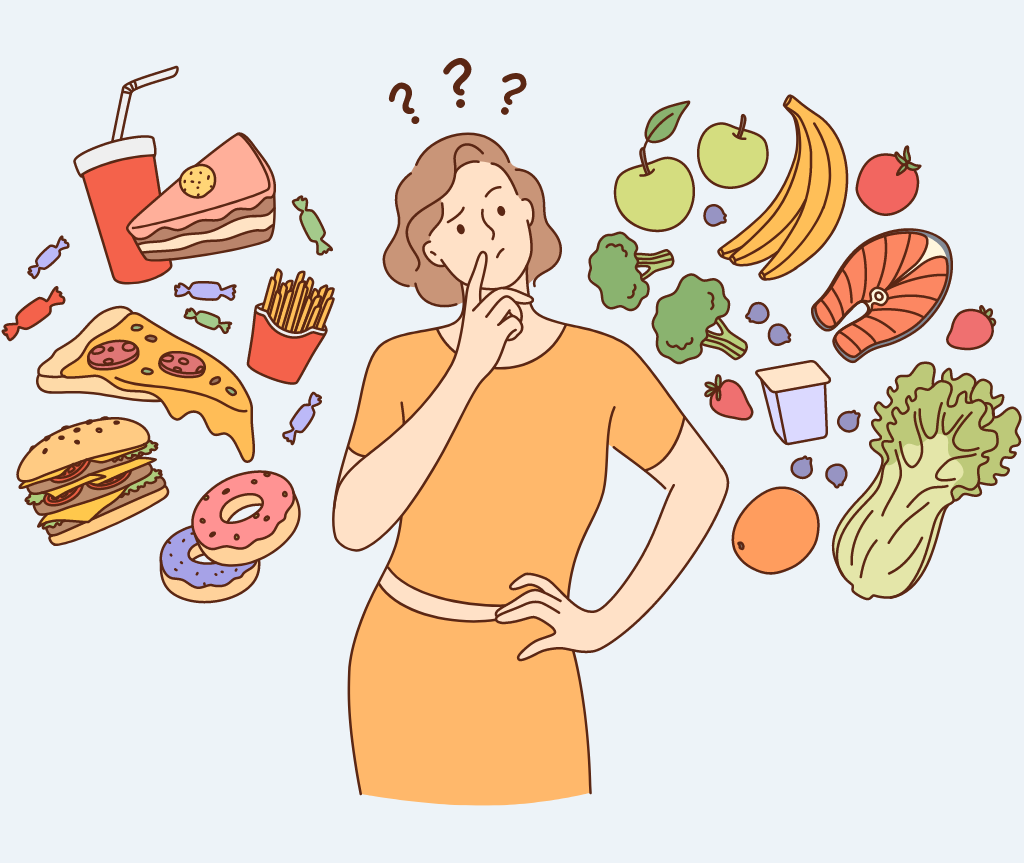You know those nights when you’re tired, hungry, and want dinner done? A frozen meal or bag of crisps feels like the easiest choice. We’ve all been there. Processed foods make life simpler — but the dangers of processed foods often hide behind that convenience. What they do inside your body is anything but simple.
Let’s take a closer look at what really happens when processed foods become your go-to.
1. They’re Packed with Chemical Additives
Those long ingredient lists — the ones that sound more like a chemistry class than a kitchen — are filled with preservatives, flavour enhancers, and artificial colours.
Additives like BHA (butylated hydroxyanisole) and BHT (butylated hydroxytoluene) help keep food fresh, and MSG (monosodium glutamate) enhances flavour. However, studies suggest that long-term exposure can disrupt hormones, affect behaviour in children, and even increase cancer risk.
Your body doesn’t always know how to handle these synthetic substances. Even small amounts can add up over time.
Try this: Choose foods with ingredients you’d use in your own kitchen — or prep a few quick snacks yourself for the week ahead.
2. Artificial Flavours and Colours
Bright sweets, neon drinks, and flavoured crisps look fun — but those colours don’t come from nature. Dyes like Red 40 and Yellow 5, and sweeteners such as aspartame or sucralose, have been linked to gut changes, headaches, and behavioural issues in children.
Some people can eat them without noticing any difference; others feel jittery or experience a foggy sensation. The key is paying attention to how you feel after eating them.
Try this: Reach for foods with natural colour — a handful of berries, roasted carrots, or homemade popcorn dusted with cinnamon.
3. Grains That Lose Their Goodness
When grains are processed into white bread or rice, the fibre and vitamins disappear — leaving only fast-digesting starch that spikes your blood sugar and leaves you hungry again soon after.
Over time, diets high in refined grains are linked to heart disease, diabetes, and weight gain.
Try this: Swap white bread for wholemeal bread, or use brown rice instead of white rice. Small changes like these can make a significant difference in blood sugar balance and energy levels.
4. Hidden Sugar Everywhere
Sugar hides under many names — fructose, dextrose, corn syrup — and shows up in foods you wouldn’t expect, like pasta sauces or salad dressings.
The World Health Organisation advises keeping added sugars below 10% of your daily calories, yet the average person eats nearly 17 teaspoons a day. It’s no wonder that energy levels crash and cravings return so quickly.
Try this: Check labels for total sugars per 100g — aim for 5g or less. Naturally sweet snacks, such as fruit or yoghurt with honey, can satisfy without the spike.
5. Unhealthy Fats Sneaking In
Many processed foods contain trans fats (created when oils are hydrogenated) and too much saturated fat. These raise bad cholesterol, lower good cholesterol, and over time, clog arteries.
The worst part? They’re often hidden in innocent-looking snacks, pastries, and fried foods.
Try this: Cook with olive oil, roast instead of frying, and enjoy healthy fats from avocado, nuts, and salmon. Your heart will thank you.
6. Way Too Much Salt
That salty tang in crisps or ready meals comes at a price. One frozen dinner can contain over 1,000 mg of sodium, nearly half your daily limit. High salt intake raises blood pressure and strains your kidneys and arteries.
Try this: Use herbs, garlic, or lemon for flavour instead of salt. Choose “low-sodium” labels whenever possible, and taste your food before reaching for the shaker.
7. Missing the Nutrients You Need
Processing removes much of what your body depends on — vitamins, minerals, and fibre. Refined flour loses B vitamins and vitamin E, while white sugar is stripped of its natural minerals.
A diet built on packaged foods can leave you feeling tired, run-down, and prone to illness.
Try this: Build meals around colourful vegetables, beans, nuts, seeds, and whole grains. If you frequently consume processed foods, a multivitamin may help fill in the gaps.
8. Easy to Overeat, Hard to Stop
Processed foods are designed to be irresistible — that perfect mix of sugar, salt, and fat lights up your brain’s reward system. The problem? They rarely satisfy, so you keep eating.
Over time, this can lead to weight gain and metabolic imbalances, making it even harder to break the cycle.
Try this: Slow down at meals. Check in with your hunger halfway through. Often, you’ll find you’ve had enough before your plate is empty.
The Bottom Line
The dangers of processed foods aren’t just about calories — they’re about how these foods affect every system in your body, from hormones to heart health.
But here’s the good news: you don’t have to quit everything at once. Start by cooking one more meal at home this week, or swapping your usual snack for something fresh.
Each small step rebuilds your connection with real food — food that nourishes, satisfies, and supports long-term health.
Tonight, take 30 seconds to read the label on something in your cupboard. You might see those hidden ingredients differently — and that awareness alone is where change begins.



